When temperatures soared to over 37 degrees Celsius last month, Chee Kuan Chew had no choice but to stay indoors with the air conditioning on.
"You can't live in Singapore without air conditioning. The heat is unbearable," Chee said.
Chee, a 20-year-old student, lives with his family in a four-bedroom apartment in Ang Mo Kio, a vibrant neighbourhood in the island nation. Chee feels lucky that his home has five air conditioners, four in each of the four bedrooms and one in the living room.
"I drink a lot of water, take cold showers and turn on the air conditioning all weekend. That's how I cope with the heat," he said.
Located less than 140 km north of the equator, Singapore is famous for its hot and humid weather and year-round temperatures above 26 degrees Celsius. This makes the island nation one of the world's biggest users of air conditioning, with a higher ratio of air conditioning per capita than any other country in Southeast Asia.
In Singapore, air conditioning has become an indispensable element. There is hardly any office, shopping mall or apartment that does not have air conditioning.
The late Prime Minister Lee Kuan Yew once called air conditioning "the greatest invention of the 20th century" and helped make the island nation one of the world's preeminent financial centers.
But Singapore's love affair with air conditioning comes at a high cost. The hot country is getting hotter, in what experts call a "vicious cycle." It's a paradox that every country that relies heavily on air conditioning faces.
"The warmer the Earth gets, the more people use air conditioning. As more people use air conditioning, the Earth gets warmer," said CNN analyst Heather Chen.
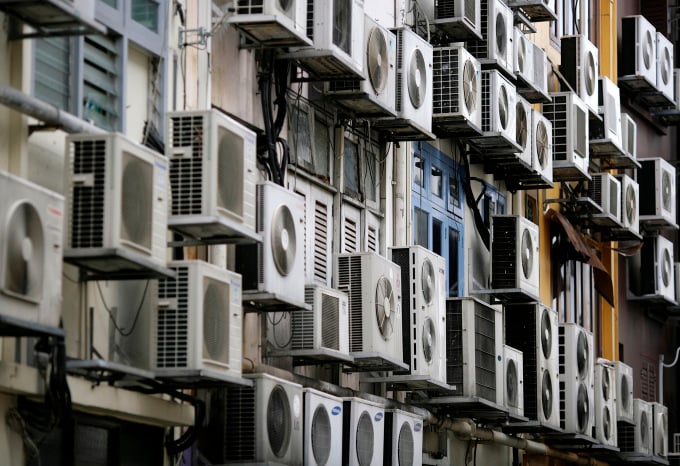
Air conditioning at a building in Singapore in December 2009. Photo: Reuters
The World Economic Forum (WEF) estimates that if left unchecked, greenhouse gas emissions related to air conditioning could raise global temperatures by 0.5 degrees Celsius by the end of this century.
Like refrigerators, today’s air conditioners use a refrigerant called hydrofluorocarbons (HFCs), a toxic greenhouse gas. In addition, air conditioners consume a lot of electricity, much of it generated from fossil fuels. The International Energy Agency (IEA) estimates that air conditioners and electric fans account for 10% of total global electricity consumption.
Singapore is feeling the effects of climate change. According to government data released in 2019, the city-state has warmed twice as fast as the rest of the world over the past six decades, with daily maximum temperatures expected to reach 37 degrees Celsius by 2100.
The warming in Singapore is not just due to global warming. It is also caused by the Urban Heat Island effect, where highly urbanised areas have much higher temperatures than surrounding areas. The effect is caused by high-rise buildings, roads and heavy traffic, which increases the heat released into the environment, especially at night.
Matthias Roth, a professor at the National University of Singapore, said it was difficult to determine exactly how much air conditioning contributed to the Urban Heat Island effect. However, in densely populated areas with heavy traffic and many high-rise buildings using air conditioning, "local warming could contribute to an increase of 1-2 degrees Celsius."
Roth notes that these areas are “typically small, so they won’t have a significant impact on the average citywide temperature.” However, he notes that when used in large numbers and frequently, they can “account for a large portion of energy consumption” in hot places.
Experts say there are a number of ways to break the vicious cycle of "hot - turn on the air conditioner - hotter weather".
Under the Kigali Amendment to the United Nations Montreal Protocol in 2016, many countries are phasing out HFC coolants in air conditioners and replacing them with more environmentally friendly ones such as hydrofluoroolefins (HFOs).
Experts say people can look to other cooling methods. Increasing green spaces, shade and smart ventilation are more sustainable “passive cooling strategies” that Associate Professor Radhika Khosla of the Smith School of Enterprise and the Environment at the University of Oxford suggests.
"There are many situations where air conditioning is necessary. But instead of turning to air conditioning as the first resort to combat the heat, consider other alternatives," she said. "Given Singapore's experience with hot and humid weather, it should set an example for other countries in promoting and scaling up sustainable cooling solutions."
Singapore’s National Environment Agency (NEA) has banned the supply of high-GWP (global warming potential) coolants from October 2022, and is encouraging households to use electric fans instead of air conditioning where possible. The government agency also recommends that people set timers and set the temperature to 25 degrees Celsius or higher when using air conditioning.
Taking environmental concerns into account, the National University of Singapore has built a “zero energy building” located within the Faculty of Design and Environment campus.
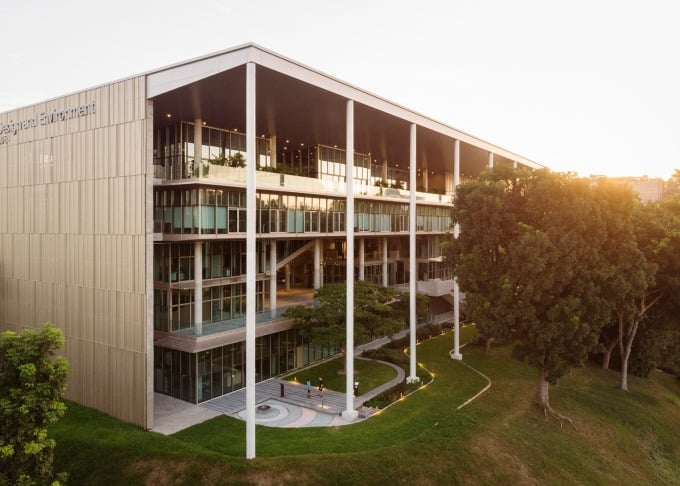
SDE4 Building at the National University of Singapore. Photo: Dezeen
Operated since 2019, the six-story building, called SDE4, is designed to be self-sufficient in energy consumption thanks to a system of 1,200 solar panels installed on the roof. At the same time, the building is also designed to optimize ventilation and receive natural light.
The building is surrounded by greenery. Ceiling fans are used instead of air conditioning units. The building also has a smart sensor system that measures and manages factors such as temperature, humidity, CO2, light and sound to find ways to "promote energy consumption reduction".
“We hope it will inspire other buildings and designers to do the same to reduce energy use in the fight against climate change,” said vice-chancellor Heng Chye Kiang.
Thanh Tam (According to CNN )
Source link




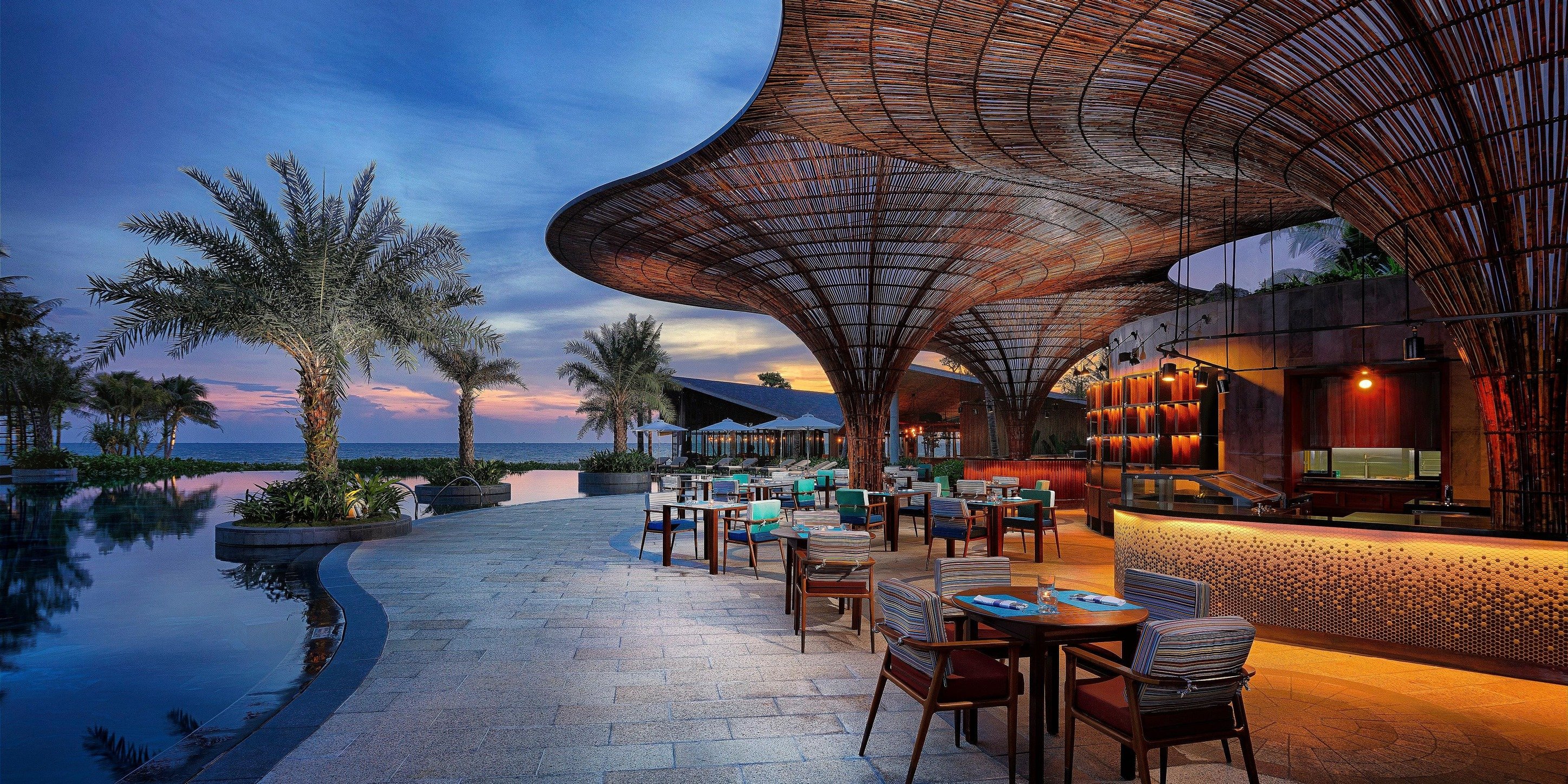
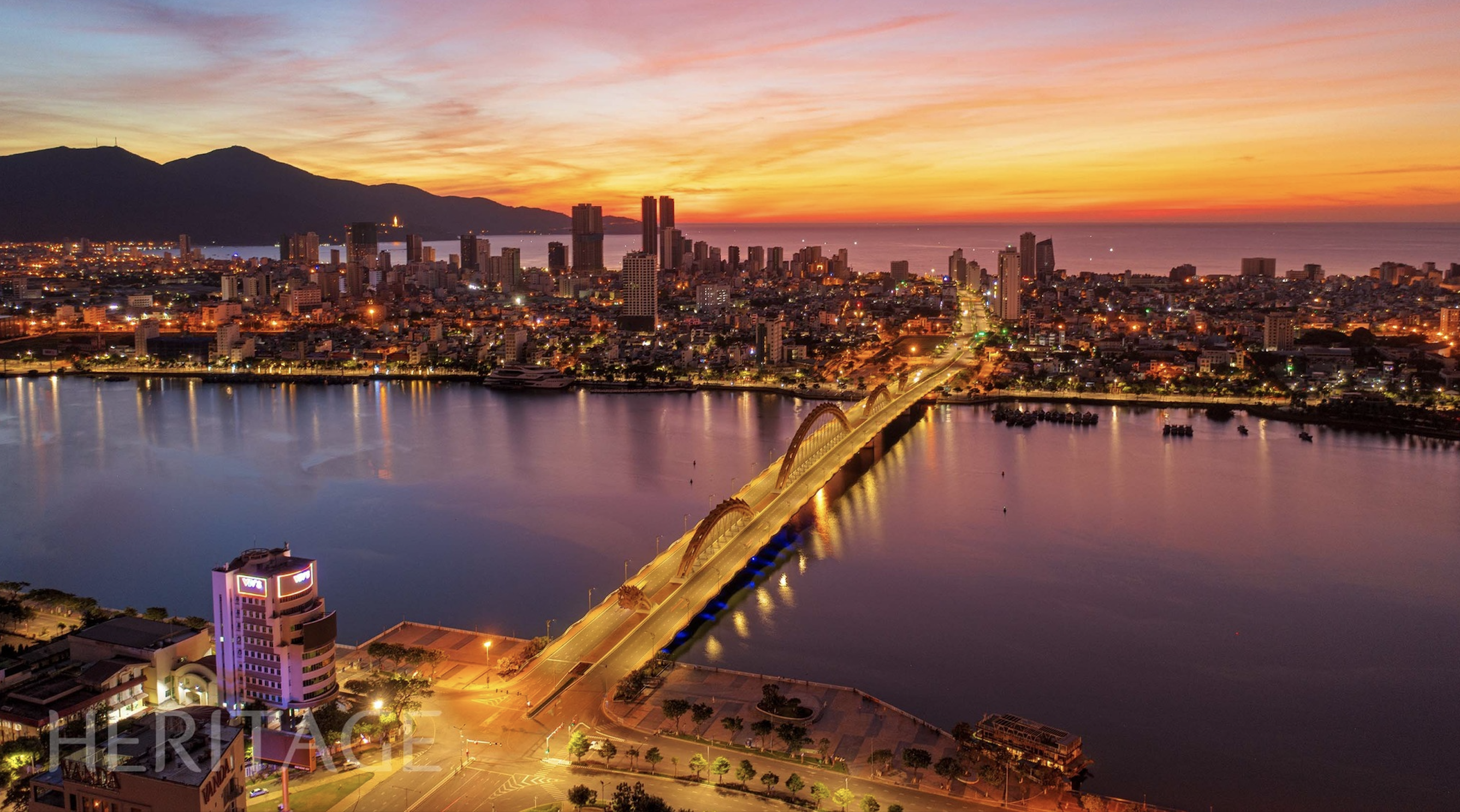

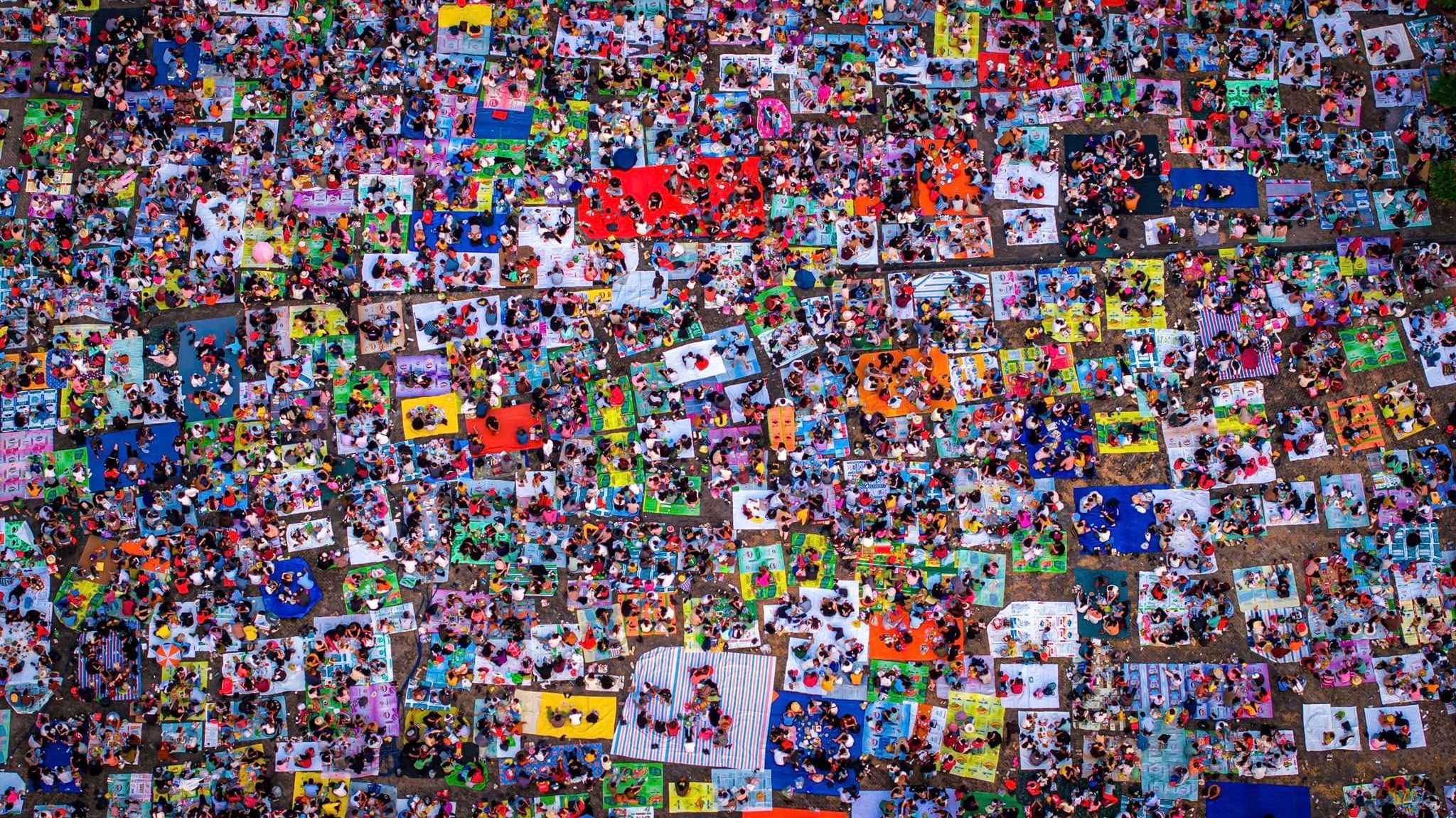
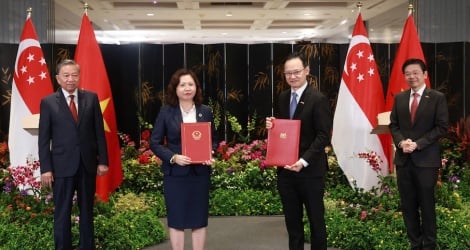

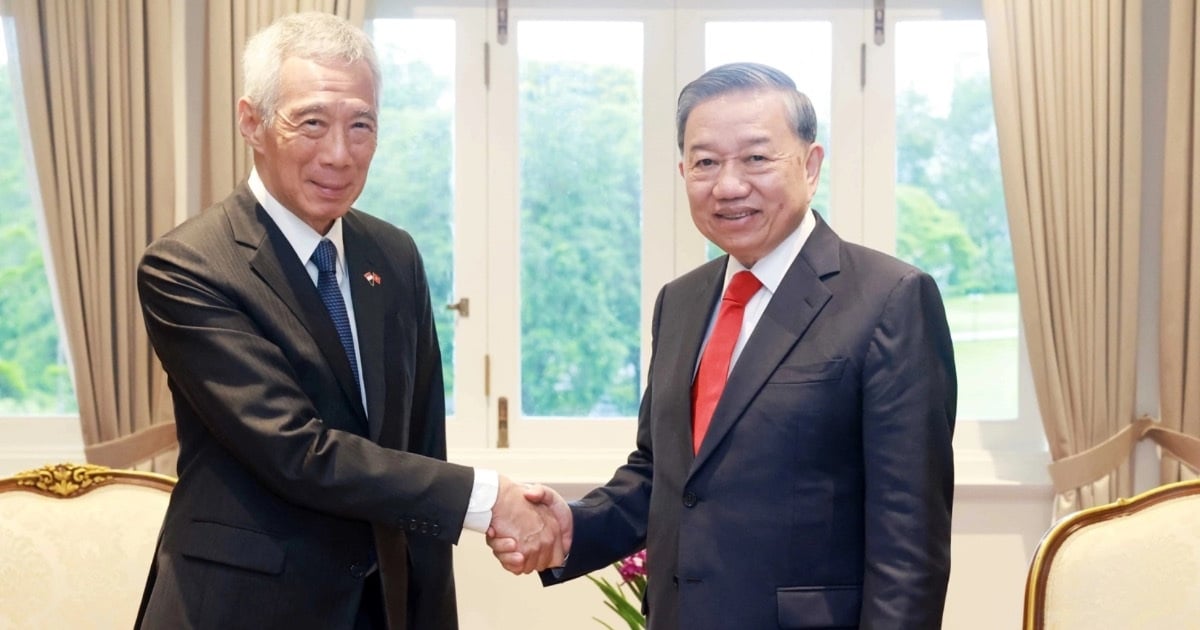

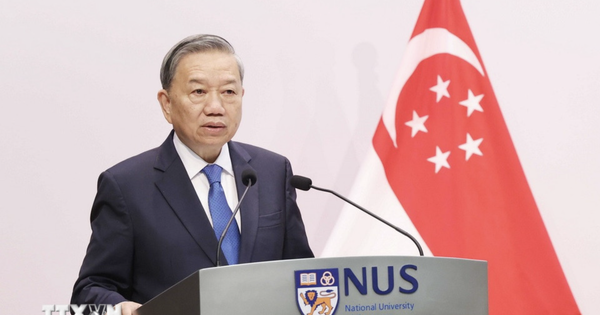

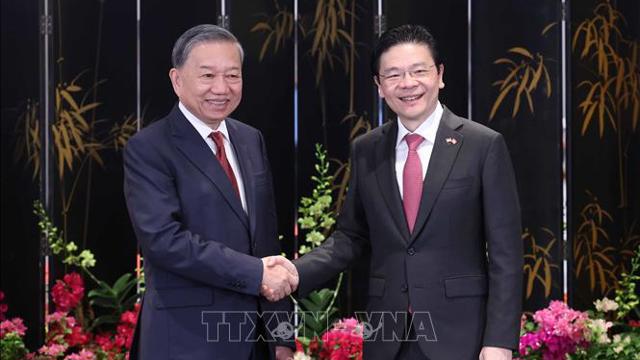

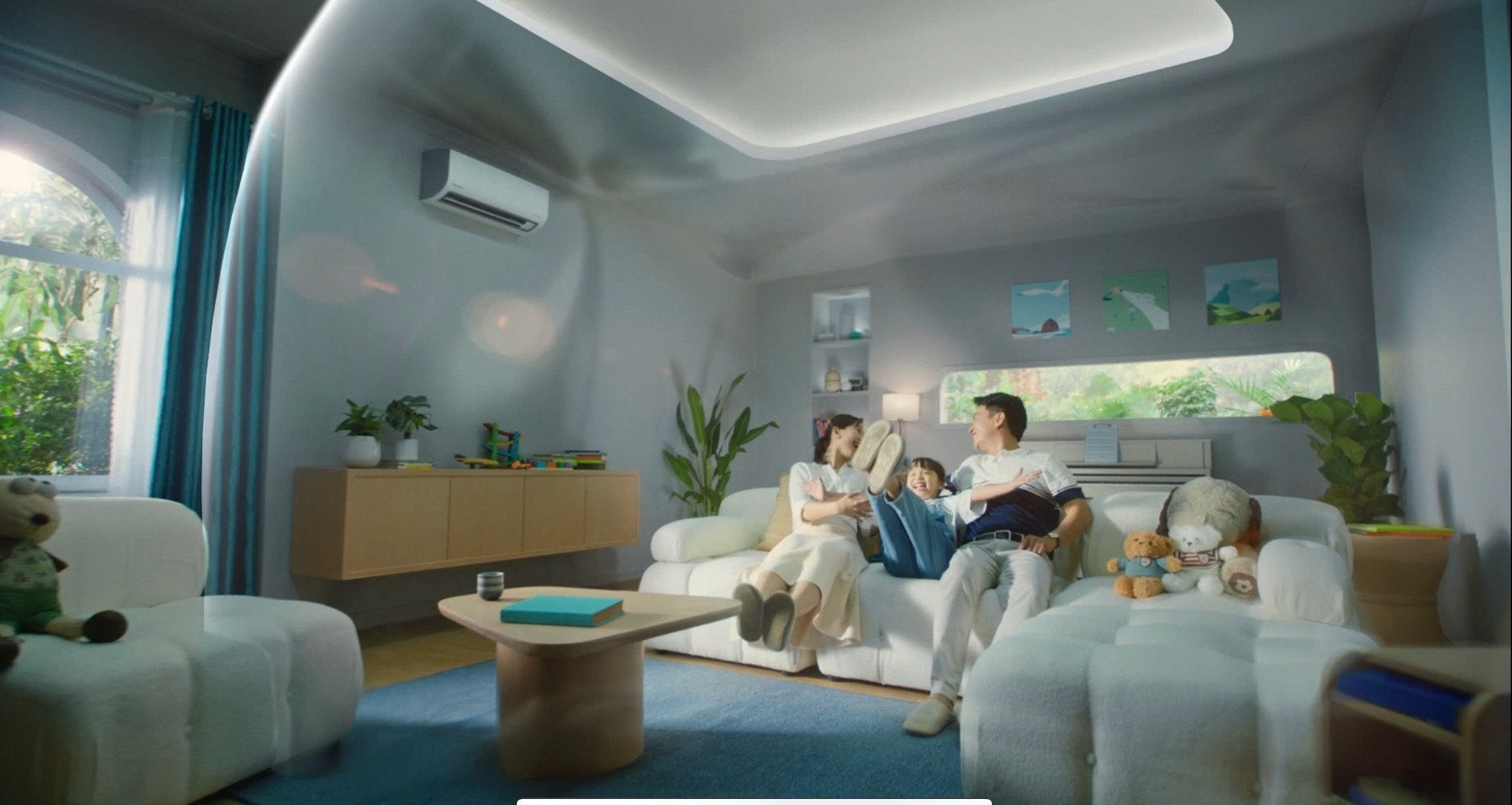

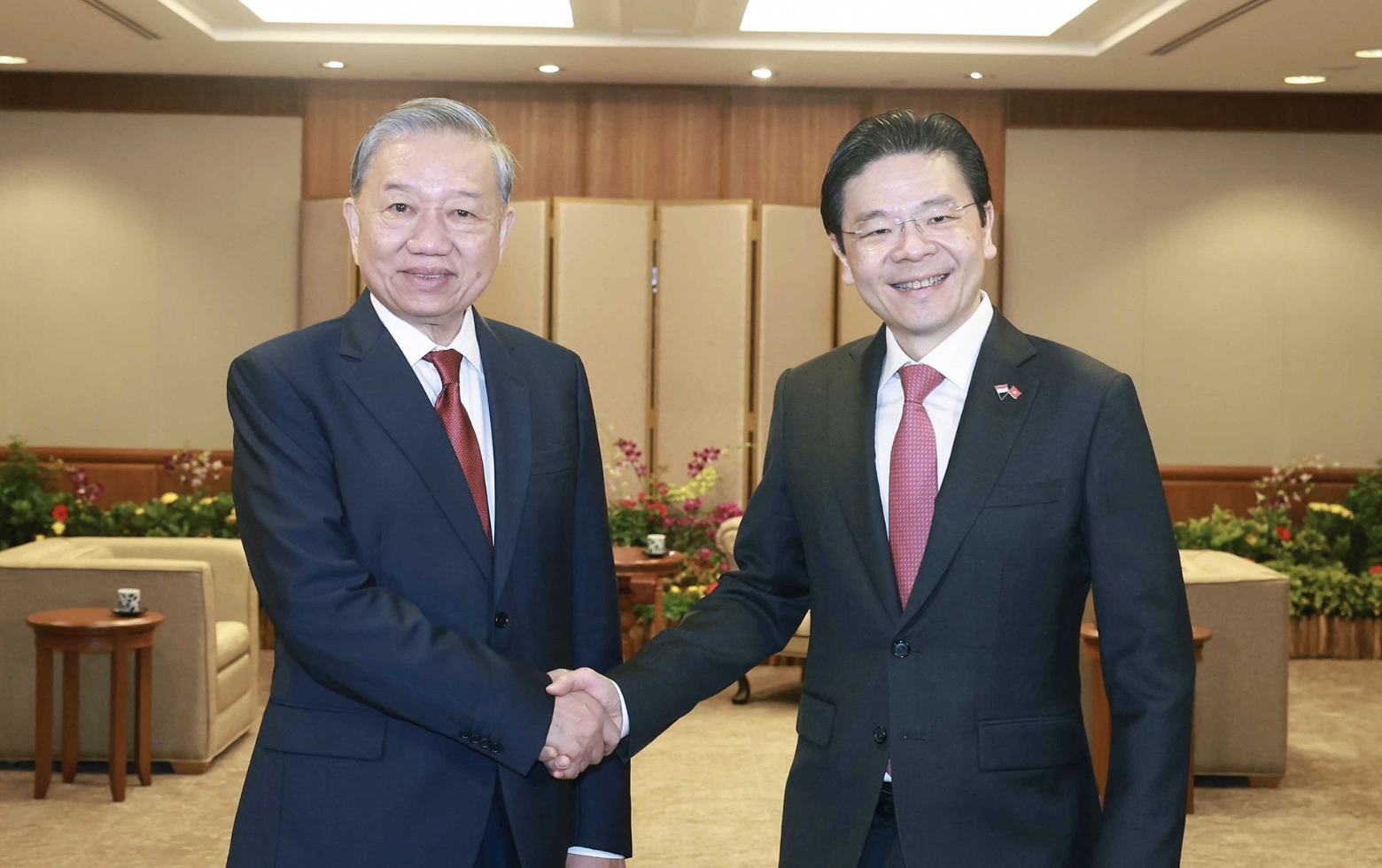



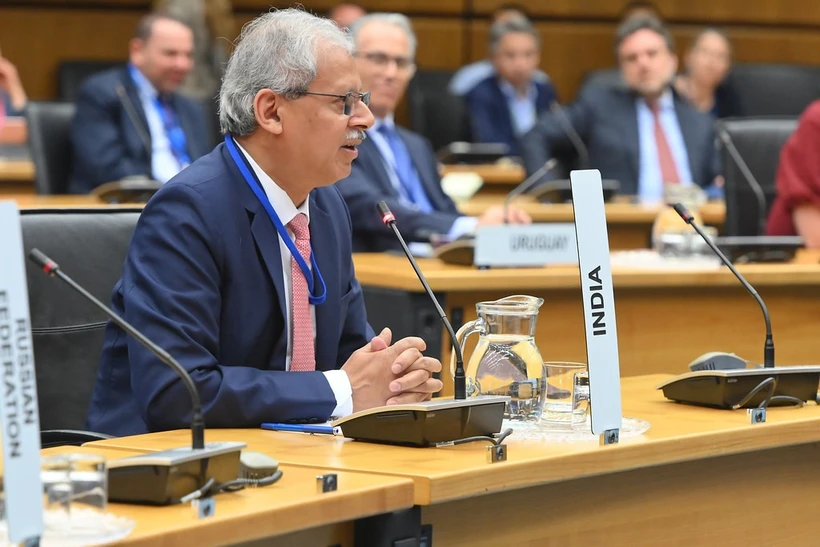





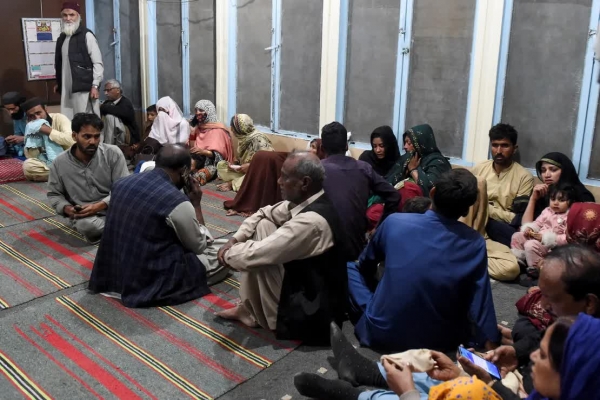







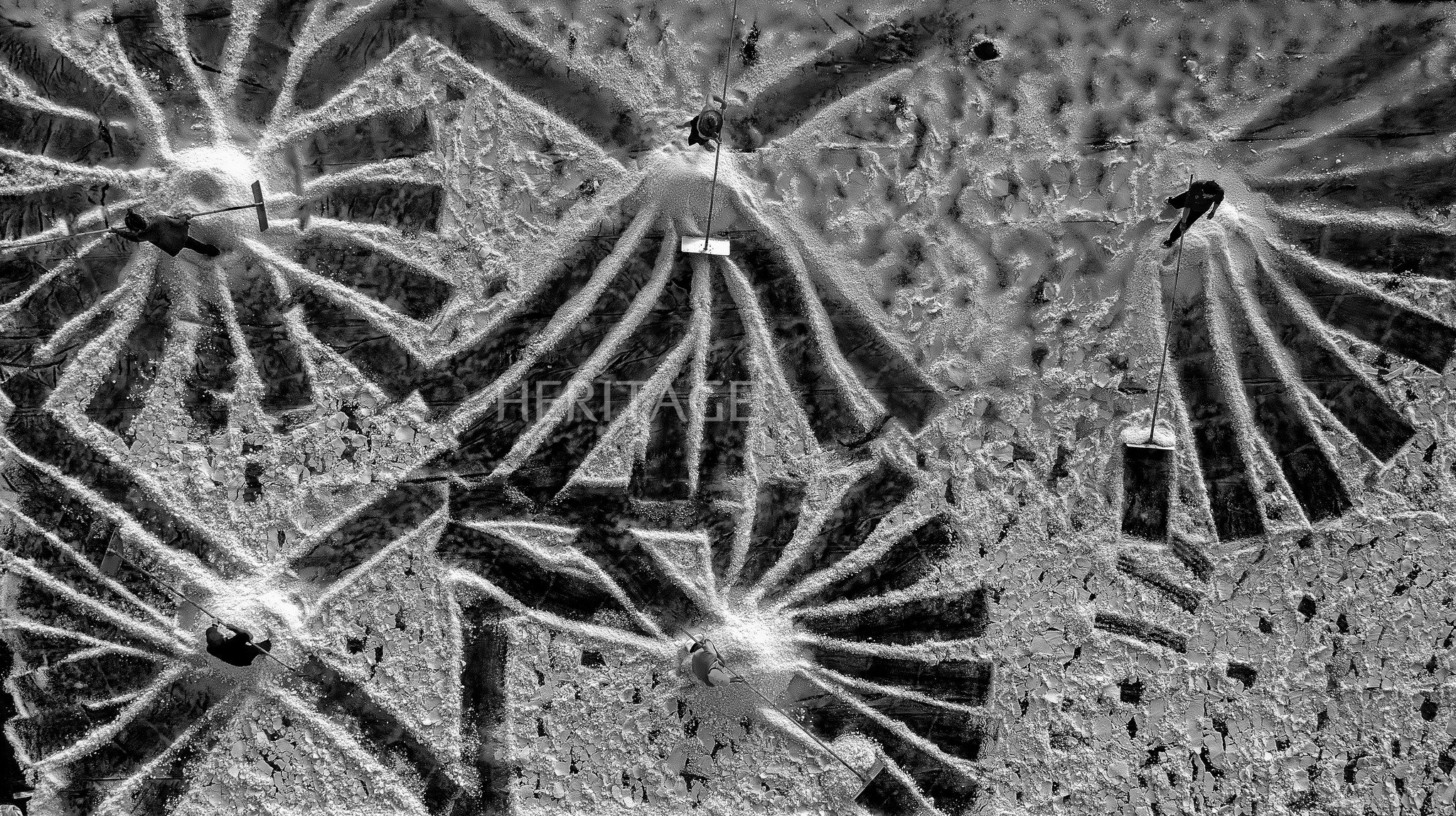
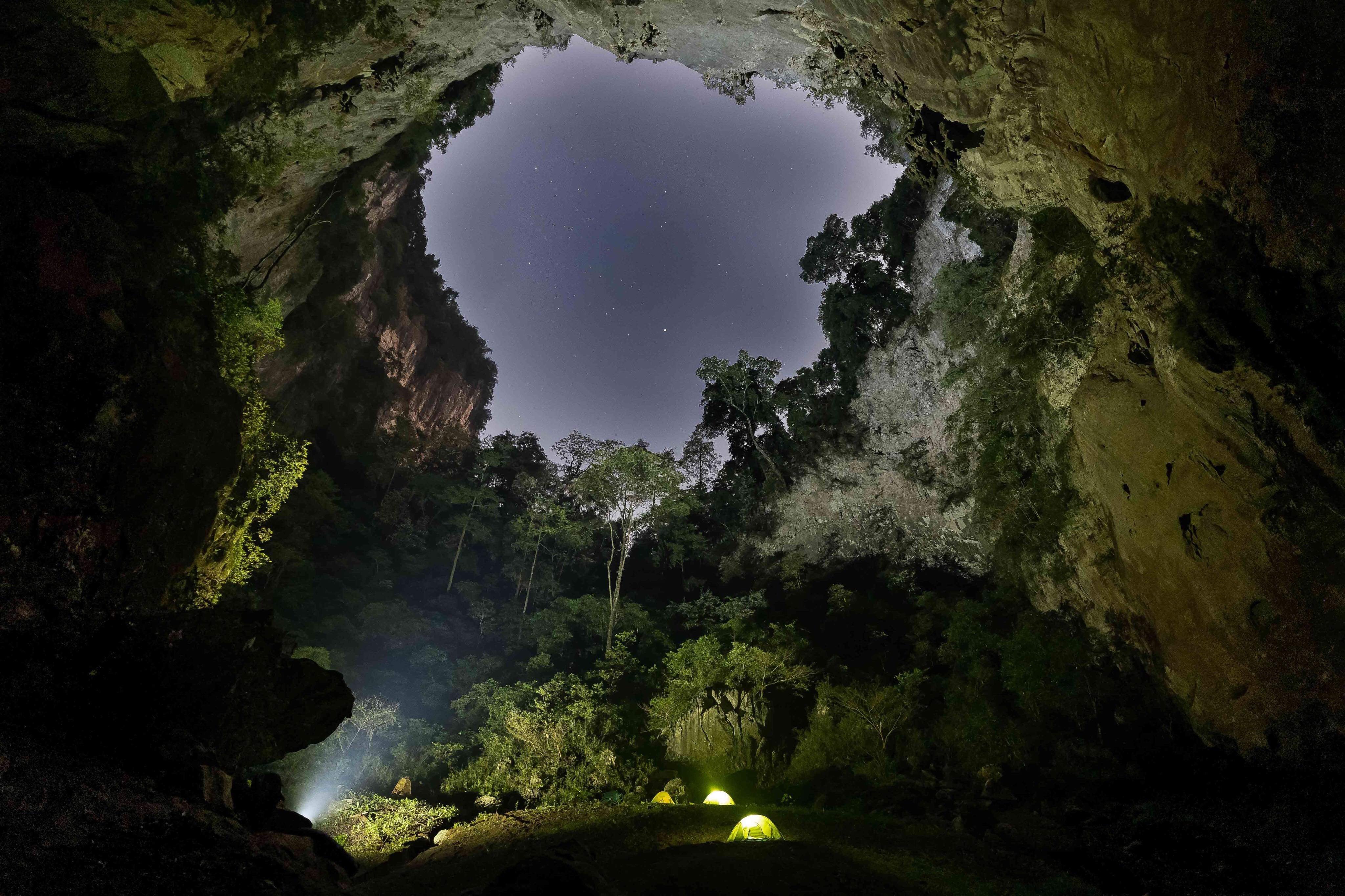
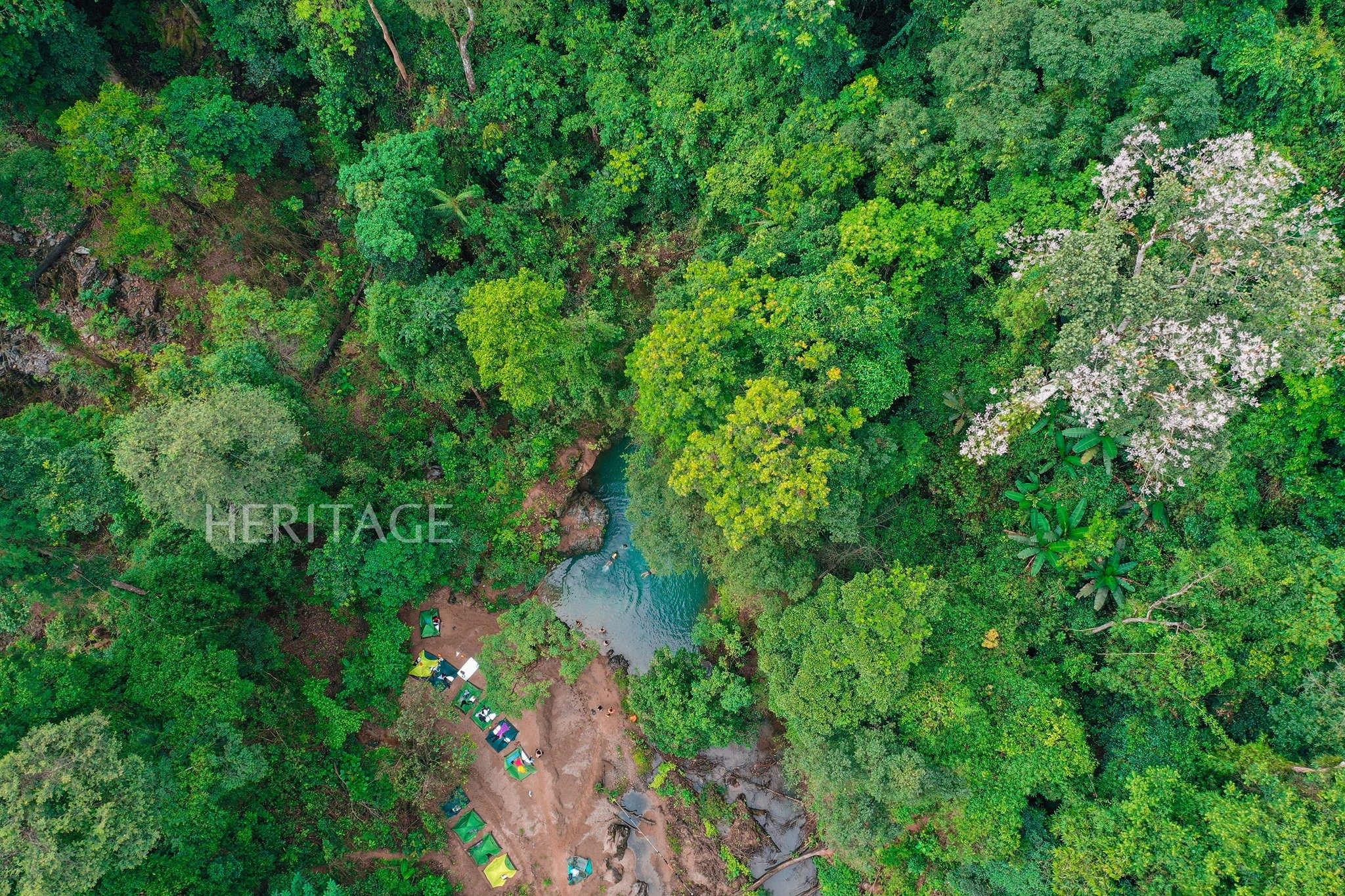
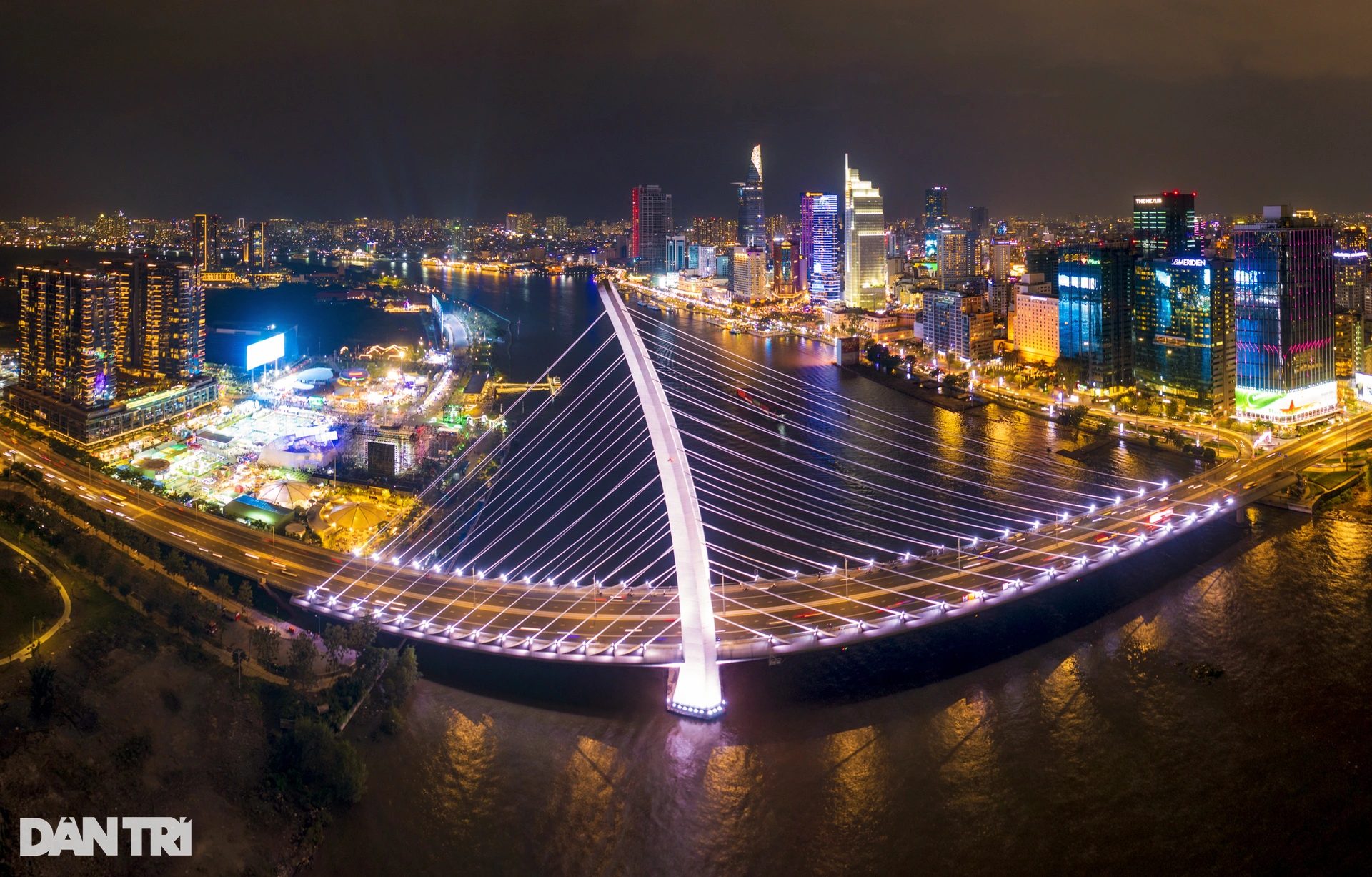

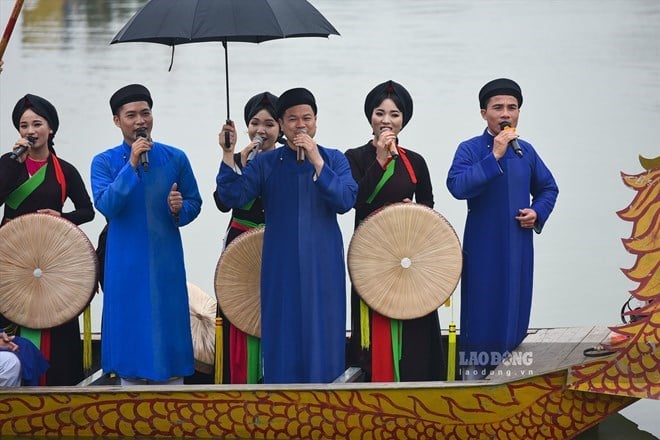

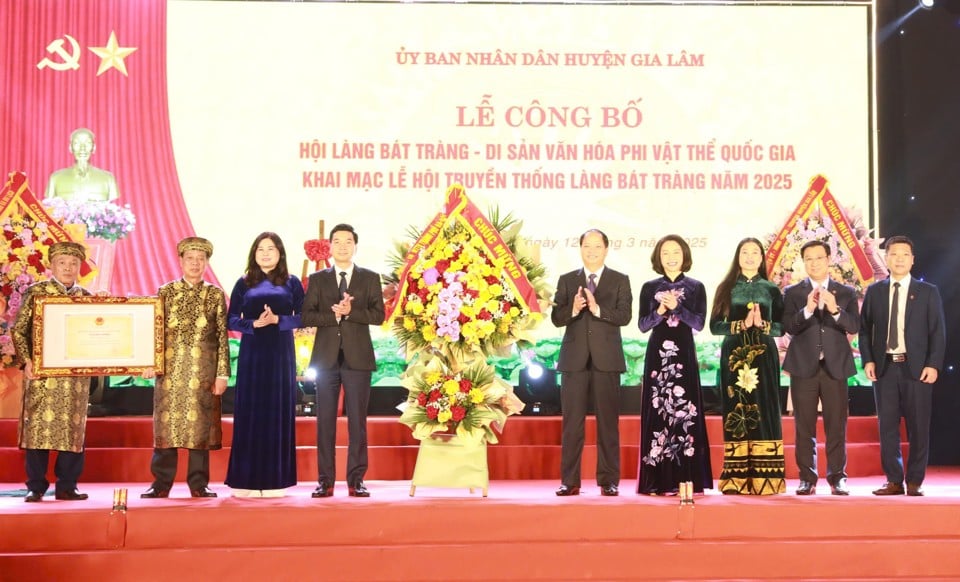
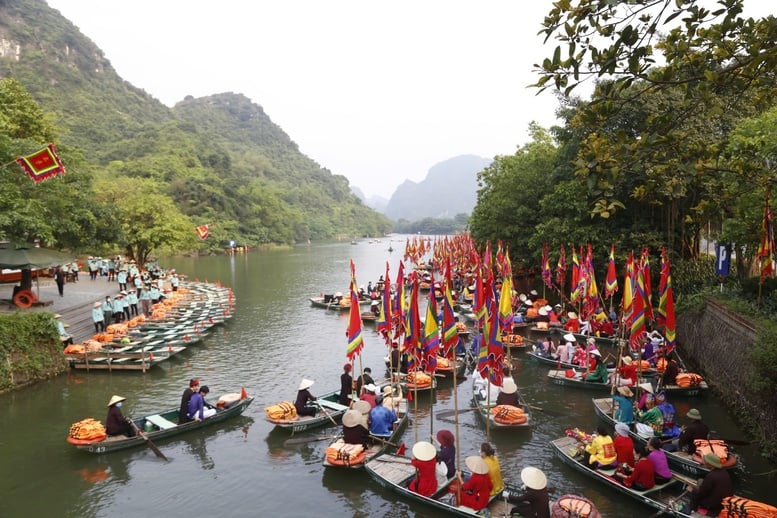



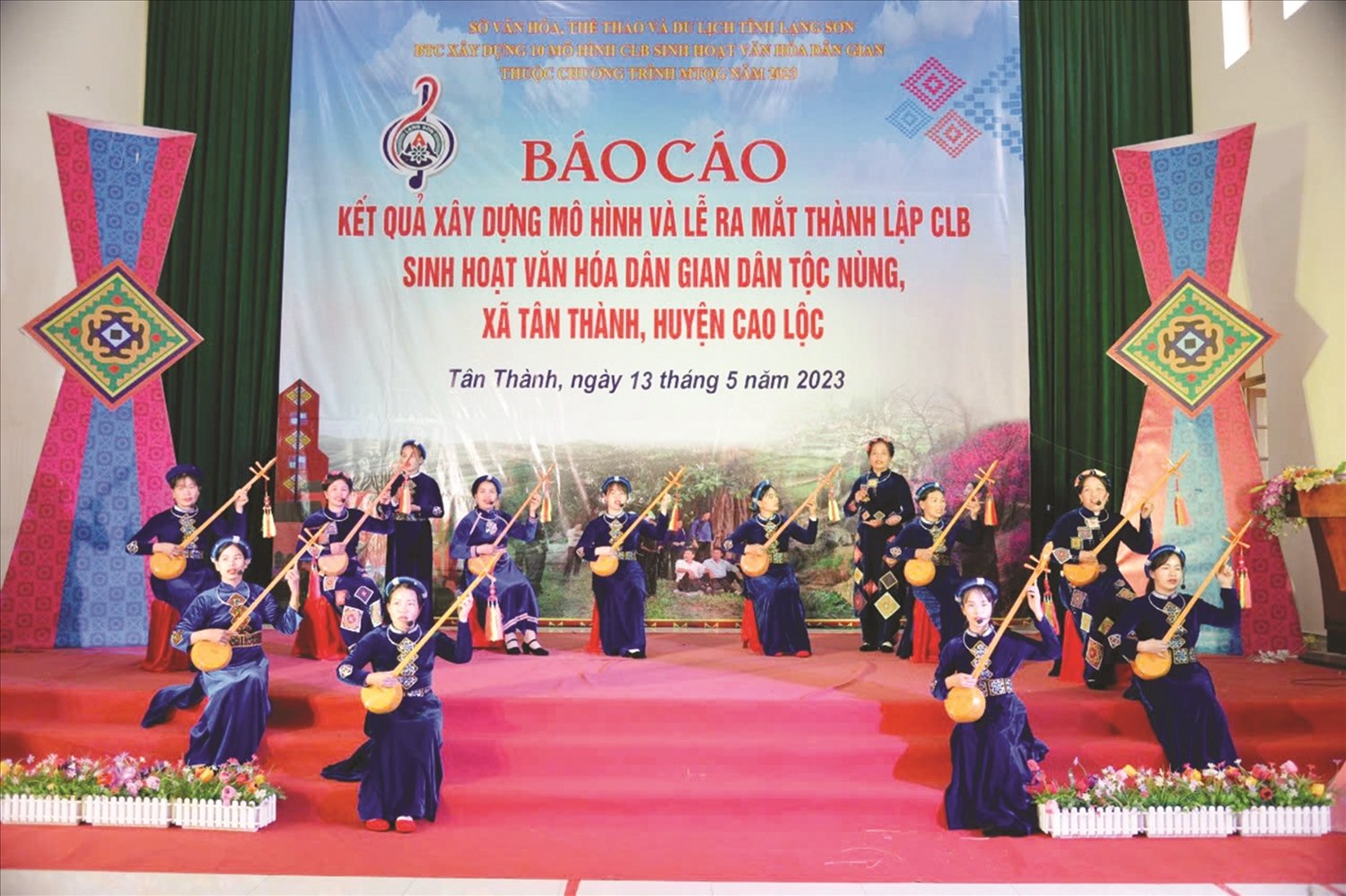

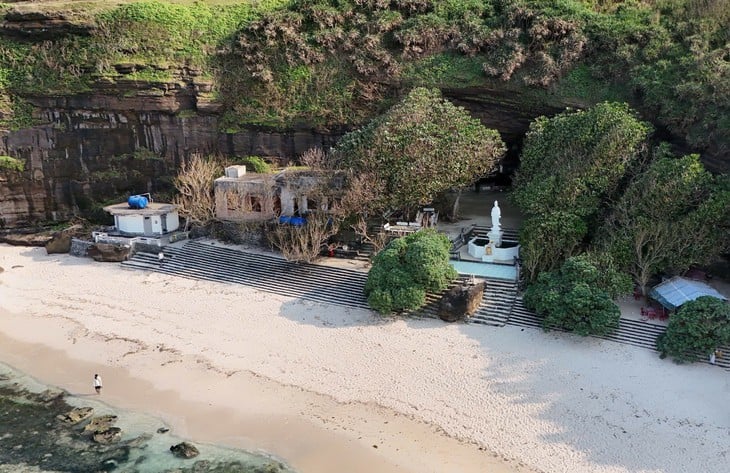





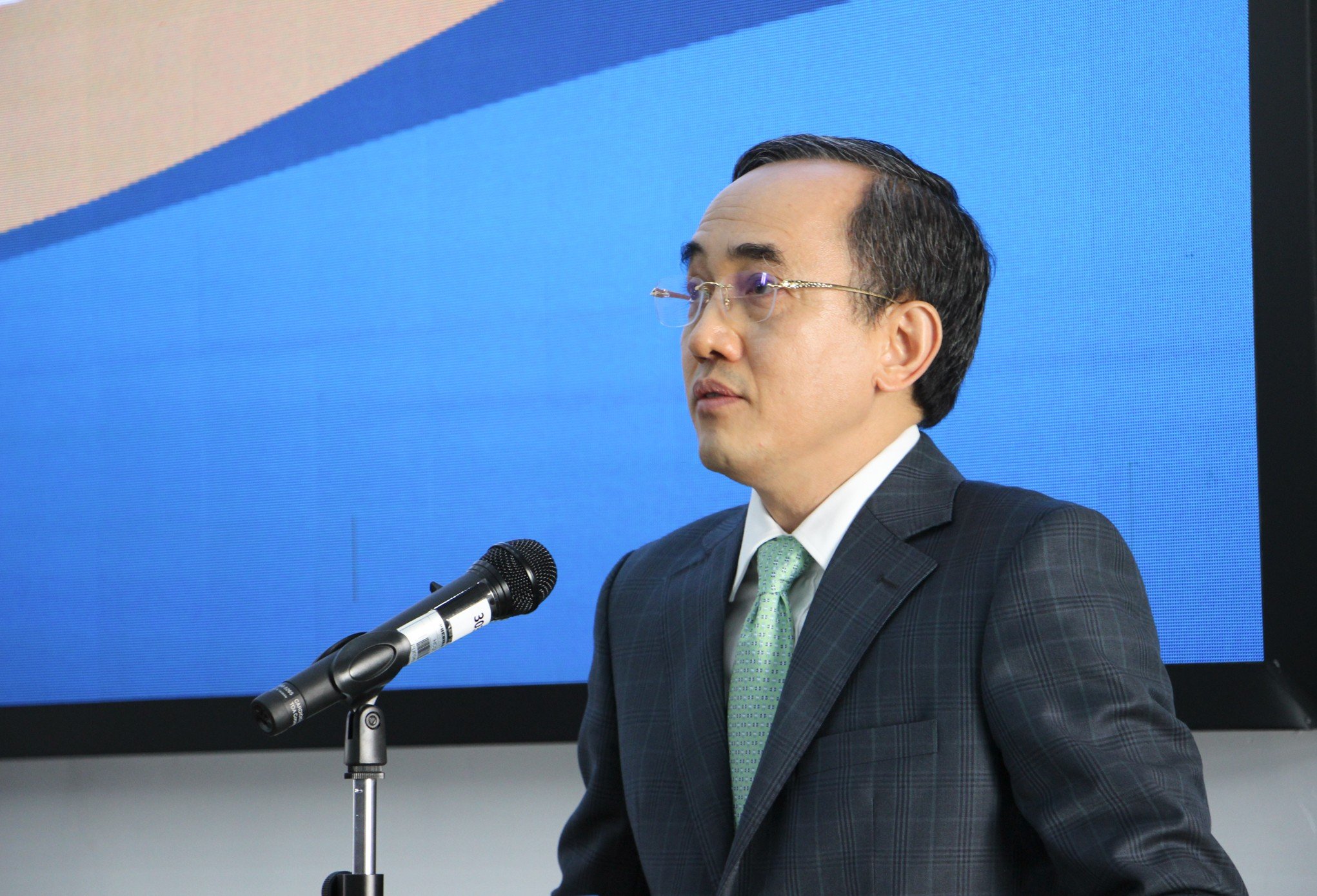
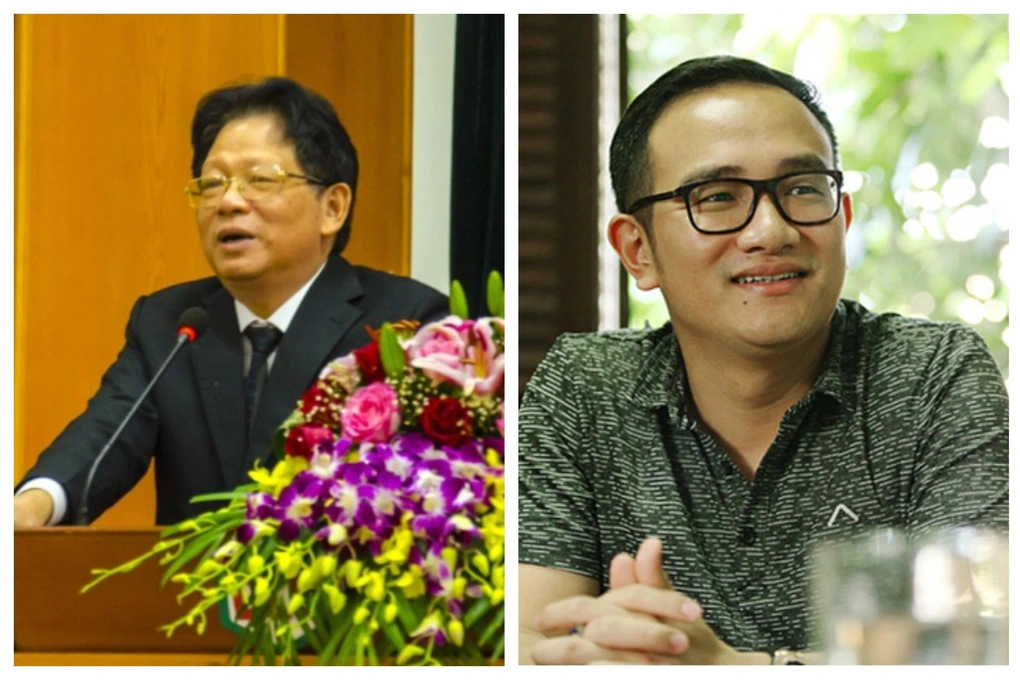









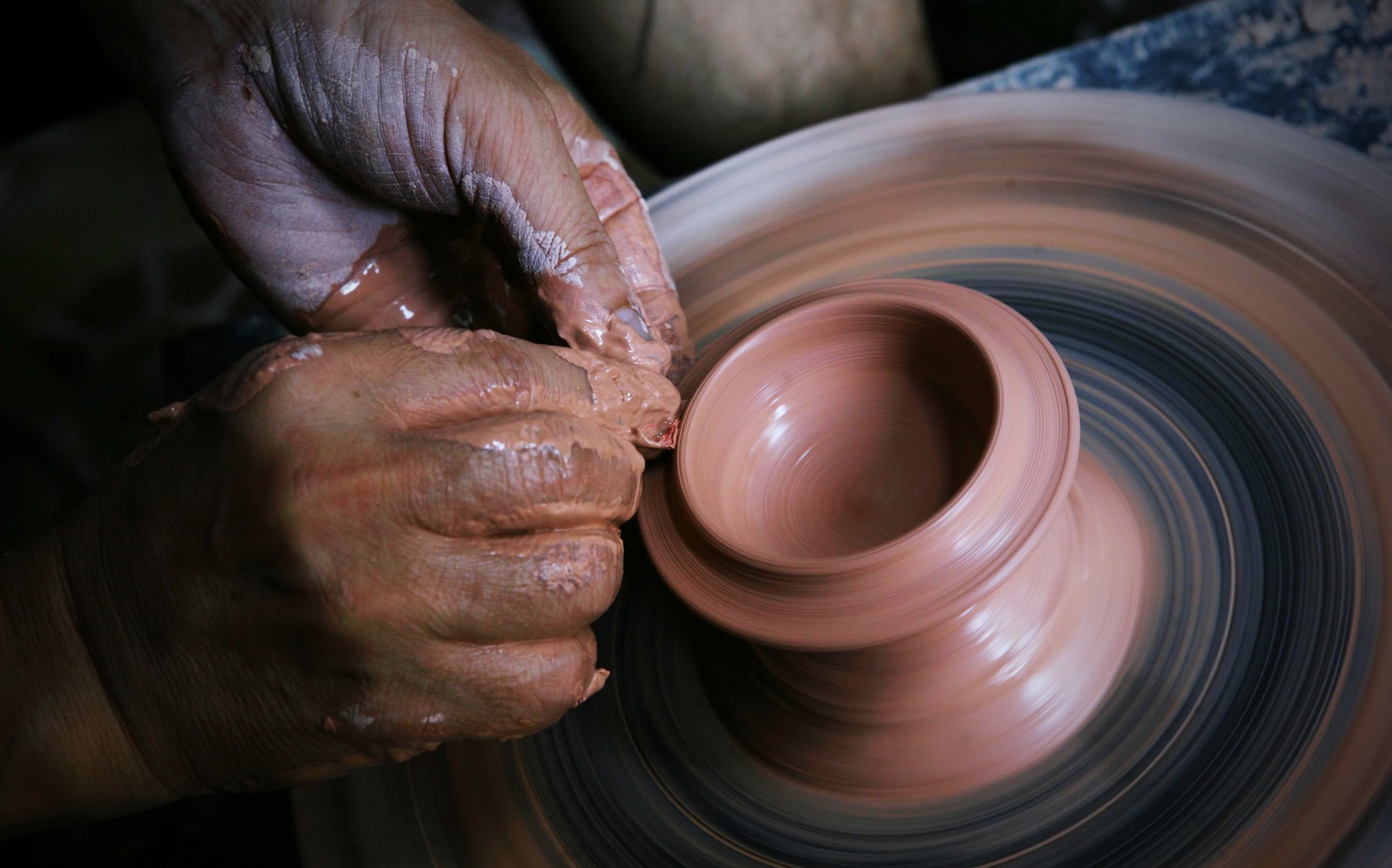
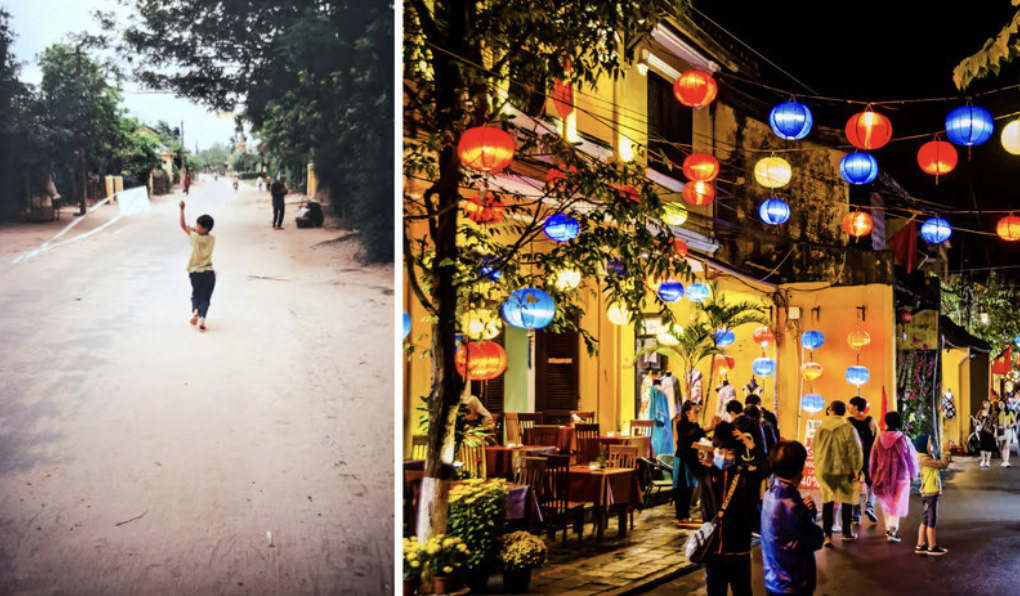
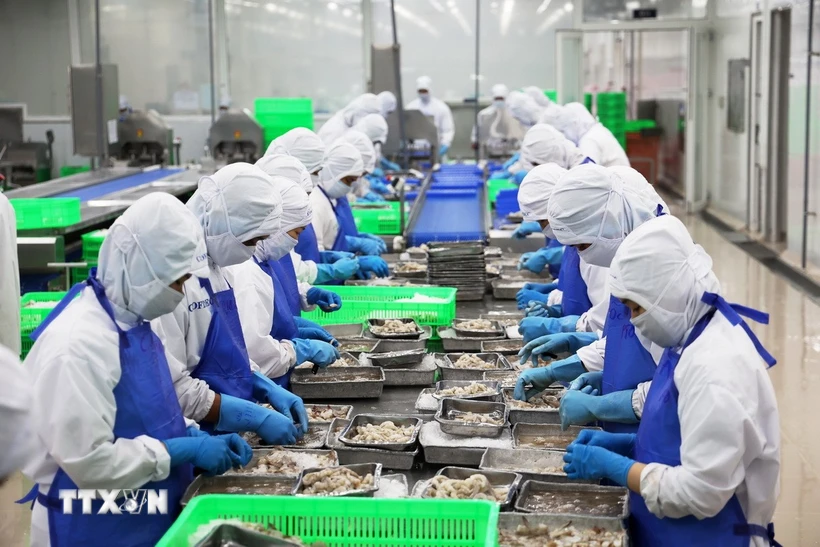




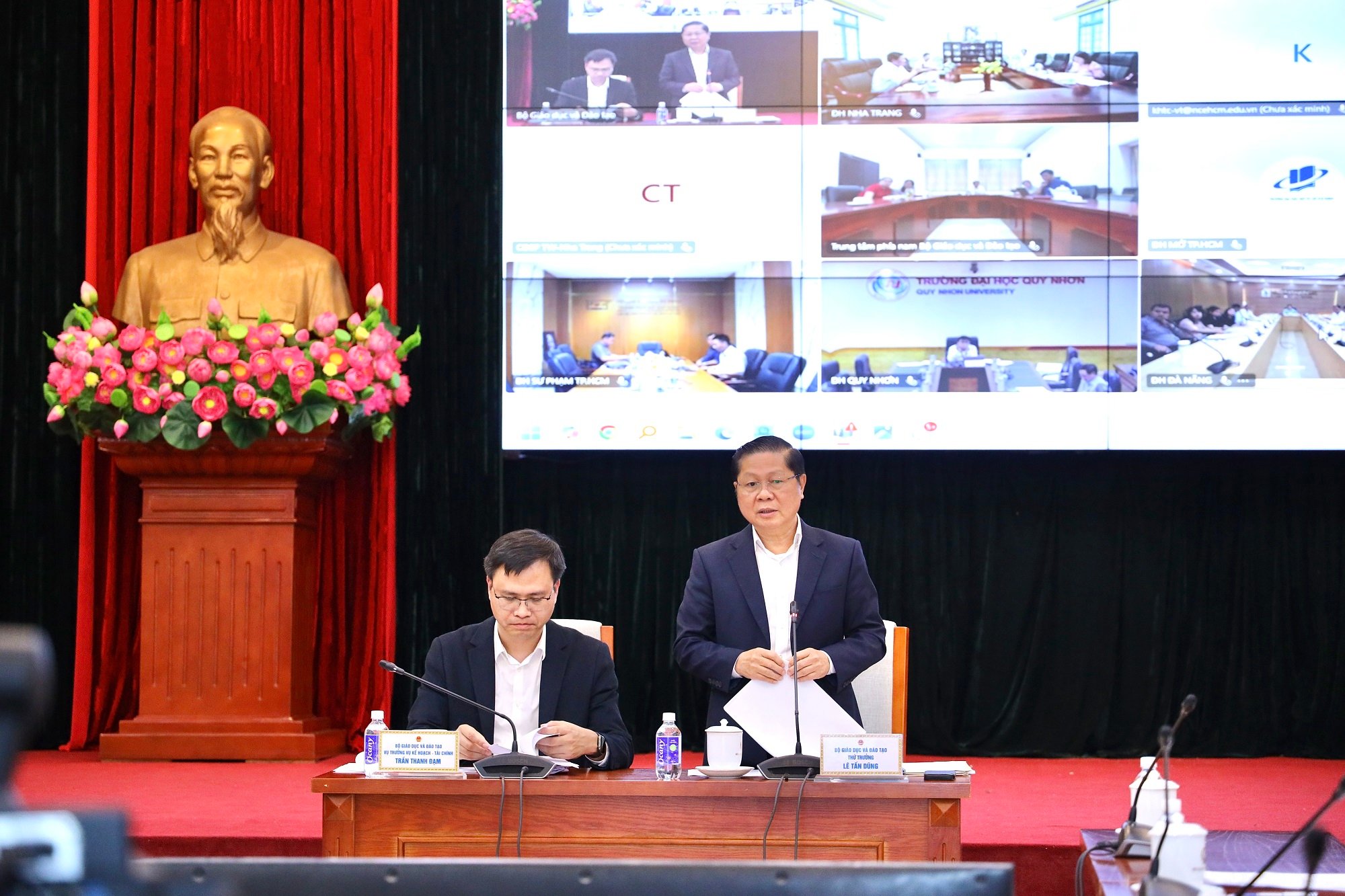











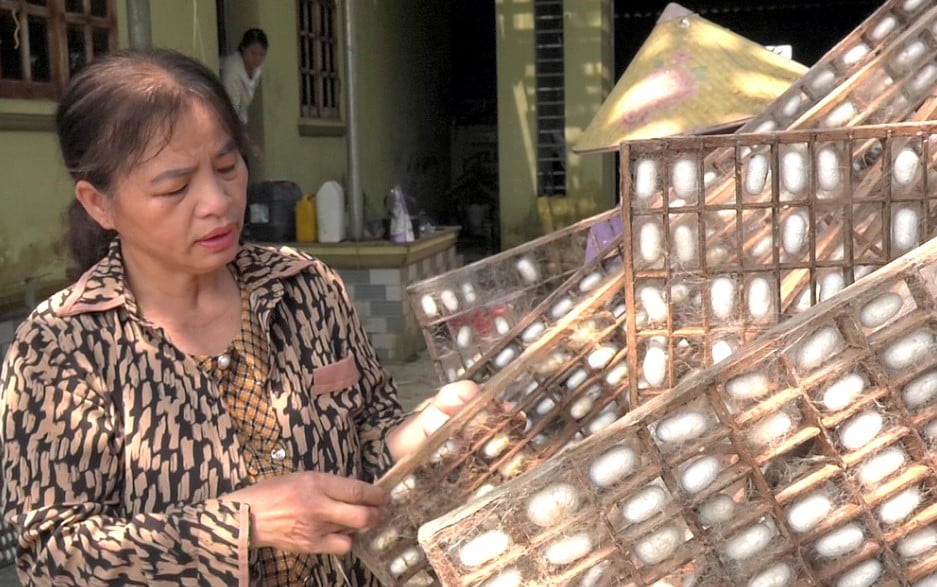
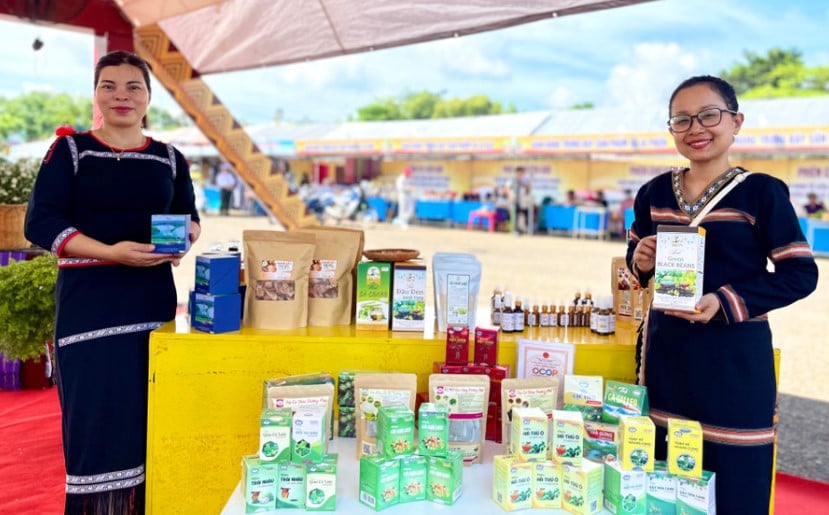



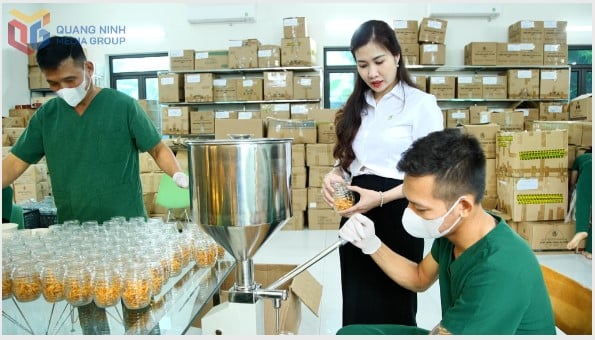
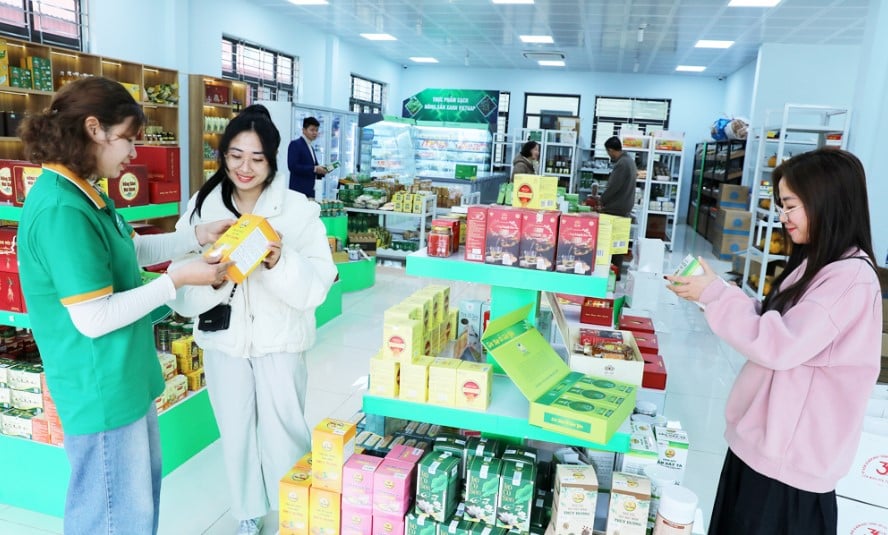
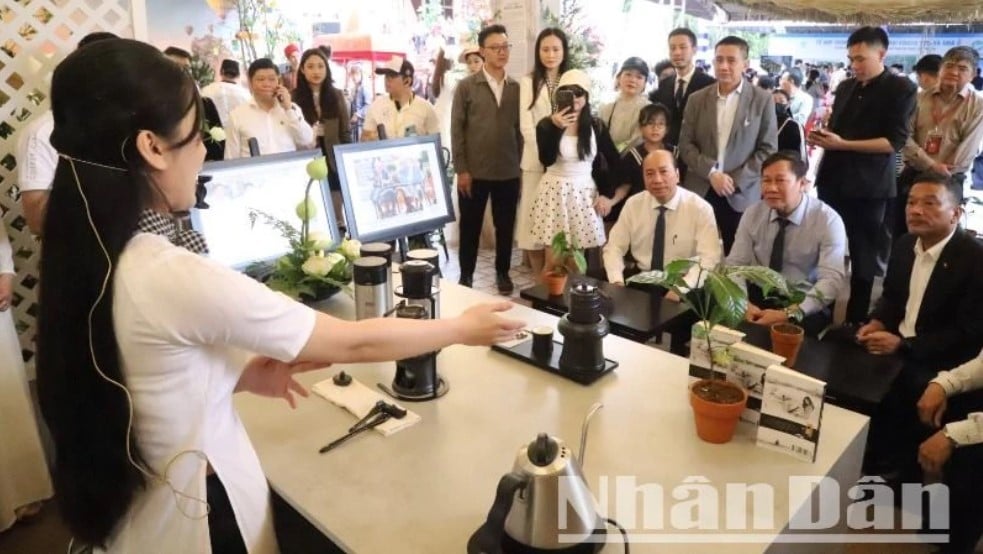
Comment (0)